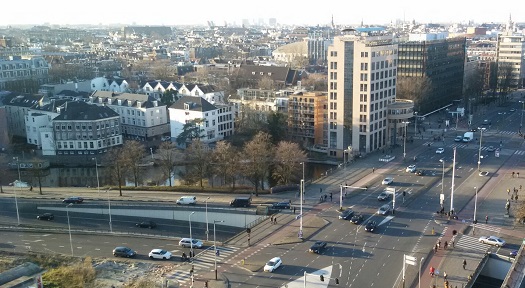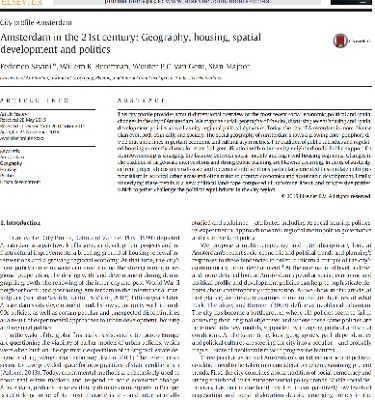Amsterdam in the 21st century: Geography, housing, spatial development and politics
City profile Amsterdam
Artikel

This city profile provides a multi-dimensional overview on the most recent social, economic, political and spatial changes in the city of Amsterdam. We map the social-geography of the city, discussing recent housing and spatial development policies as well as city-regional political dynamics.
Today, the city of Amsterdam is more diverse than ever, both ethnically and socially. The social geography of Amsterdam shows a growing core–periphery divide that underlines important economic and cultural asymmetries. The tradition of public subsidies and regulated housing currently allows for state-led gentrification within inner city neighborhoods. Public support for homeownership is changing the balance between social, middle and high-end housing segments.
Changes in the tradition of large-scale interventions and strong public planning are likewise occurring. In times of austerity, current projects focus on small-scale and piecemeal interventions particularly oriented to stimulate entrepreneurialism in selected urban areas and often relate to creative economies and sustainable development. Finally, underlying these trends is a new political landscape composed of upcoming liberal and progressive parties, which together challenge the political equilibriums in the city region.
©

